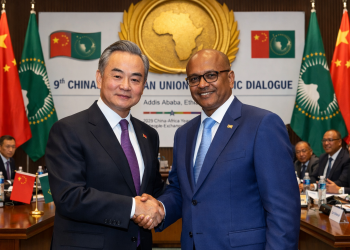…Seeks Modern, Gender-Responsive Policing Reforms
By Nkechi Eze
The Civil Society Legislative Advocacy Centre (CISLAC), Transparency International–Nigeria, has urged the National Assembly to increase the proposed women’s recruitment quota in the Nigeria Police Act (Amendment) Bill from 15 per cent to a minimum of 30 per cent, in alignment with African Union and ECOWAS benchmarks for gender inclusion in security sector governance. The organisation recalled that the National Policy of Women, adopted in 2000, also recommended a 30 per cent reservation for women in appointments.
CISLAC’s Executive Director, Auwal Ibrahim Musa Rafsanjani, made the submission during the Public Hearing organised by the House Committee on Police Affairs at the National Assembly on Monday, 17 November 2025. He was represented by the organisation’s Senior Programme Officer, Gimba Suleiman Hassan, Esq.
In its presentation, CISLAC emphasised that a 30 per cent benchmark is globally recognised as the minimum threshold for meaningful representation and a necessary corrective to decades of structural exclusion of women in the Nigeria Police Force. It lamented that women currently constitute less than 11 per cent of the Police, a figure far below regional and international standards for inclusive policing.
The recommendation drew applause from stakeholders at the session, with several panel members expressing willingness to consider a compromise starting point of 20 per cent. CISLAC welcomed the openness of the Committee and encouraged lawmakers to be bold and progressive in adopting stronger gender reforms that meet global standards.
During the hearing, the Head of the Legal Unit at the Federal Ministry of Police Affairs, Mr. Okorie Kalu, disclosed that the Ministry is developing new Police Regulations aimed at eliminating discriminatory criteria. According to him, the new rules will remove marital and pregnancy restrictions, abolish gender-based duty assignments, and end gendered dress codes—reforms that CISLAC and other advocacy groups have long championed.
As part of its broader recommendations, CISLAC called for the phasing out of analogue record-keeping at all levels of the Police Force and the establishment of a digital, unified, and perpetual record system for crimes, especially cases involving gender-based violence (GBV) and human rights violations. It further recommended mandatory documentation of investigative outcomes in a transparent and accessible format; the creation of a Gender and Inclusion Compliance Directorate empowered to monitor recruitment, training, postings, promotions, and disciplinary procedures; compulsory gender-responsive budgeting; and annual gender audits accompanied by public reporting to strengthen accountability.
CISLAC stressed that modern policing in a 21st-century democracy cannot function on outdated, analogue, or discriminatory frameworks. It noted that a digitised and gender-responsive policing system enhances professionalism, improves public trust, and strengthens Nigeria’s capacity to prevent and prosecute GBV, human rights abuses, and corruption-related offences.
The organisation reaffirmed its commitment to supporting the National Assembly in developing a more inclusive, transparent, accountable, and rights-based Police Force capable of responding effectively to Nigeria’s evolving security challenges in line with global best practices.
















